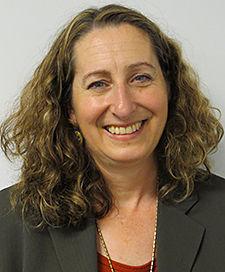Ed. note: This post is part of the Spotlight on Commerce series highlighting the contributions of Department of Commerce employees during Women’s History Month.
Guest blog post by Barbara Guttman, Leader of the Software Quality Group, National Institute of Standards and Technology
When I explain my job to someone new, I normally start by talking about the forensics work – because it’s so interesting. If the police confiscate your computer or phone, wouldn’t you want to know that the tools and techniques they use to understand the evidence on those devices work correctly? As leader of the Software Quality Group at the National Institute of Standards and Technology (NIST), I help to ensure those tools work well.
Of course, software assurance is important for many other applications. There are bugs in the code everywhere and, today, there are computers everywhere. The tools that test software can be very expensive, so NIST has a test and measurement program that helps people determine the right tools for the job and that they work correctly.
I came to NIST nearly 30 years ago, when the computer security program was ramping up because of the passage of the Computer Security Act of 1987. I wasn’t working in computer security at the time, but I had run a nationwide network of computers for the NASA inspector general’s office.
I worked in the Computer Security Division of NIST’s Information Technology Laboratory (ITL) for several years before taking a detail to NIST’s Program Office, in the Office of the Director, and then moving into the main ITL office. I like to joke that I’ve been working my way down through the lab. I’ve been chief of four of its six divisions and I became the acting lab director for six weeks when I was serving as acting deputy director. I’ve enjoyed all the jobs I’ve had here, including my current position.
My theory is, if you have an aptitude for computers and no plan for your life, computers will suck you in. That’s what happened to me. I graduated from college with a history degree and some programming experience. I had worked as a summer student at NASA in the congressional affairs office. After I graduated, I moved next door to the inspector general’s office, which offered me a permanent position and computer training.
I have found computers to be endlessly interesting. With a career in computers, you can pursue so many interest areas and change what you’re doing many times. If you’re interested in anything from formal logic verification (an exciting effort that could help automate the process of checking software) to policy, there’s a role for you in computers. My advice to anyone interested in the policy end of the field is to understand computer basics so that you understand the impact of those policies.
I never expected to do what I’m doing today in digital forensics, but it’s given me incredible opportunities. I also get to help figure out how NIST addresses the challenges of forensic science – not just for digital evidence, but for all disciplines.
I’m also part of the Scientific Working Group for Digital Evidence, www.swgde.org, serving as co-chair of the quality committee. Our goal is to provide practitioners in the field of digital evidence with standards and best practices. The group includes a mix of experts from criminal, civil and corporate security, and we’re focused on improving the rigor and the practices of this field of forensic science.
Computer science has a rapid rate of change and you, therefore, have to update procedures constantly.
The work isn’t always easy – and sometimes it’s absurd. One of my favorite quotes is from Philosopher Albert Camus reinterpreting the myth of Sisyphus, “One must imagine Sisyphus happy.” Sisyphus was condemned to repeatedly push a rock up a hill for defying the gods. Camus imagined Sisyphus as accepting the absurd punishment as his task and carrying on, even being happy. Thus, defeating the gods.
I think celebrations like Women’s History Month are great at showing there are other women, or other minorities, doing what you do or want to do. Stereotypes are very strong and challenging them requires constant reinforcement. In some ways, I very much fall into my gender stereotypes, but not in others. My husband stayed home to raise the children and I have the money-making job, but I maintain a lot of the traditional female roles in my house. It’s worked for us and I think it’s good for others to see there are different options. There are many ways up the mountain.


